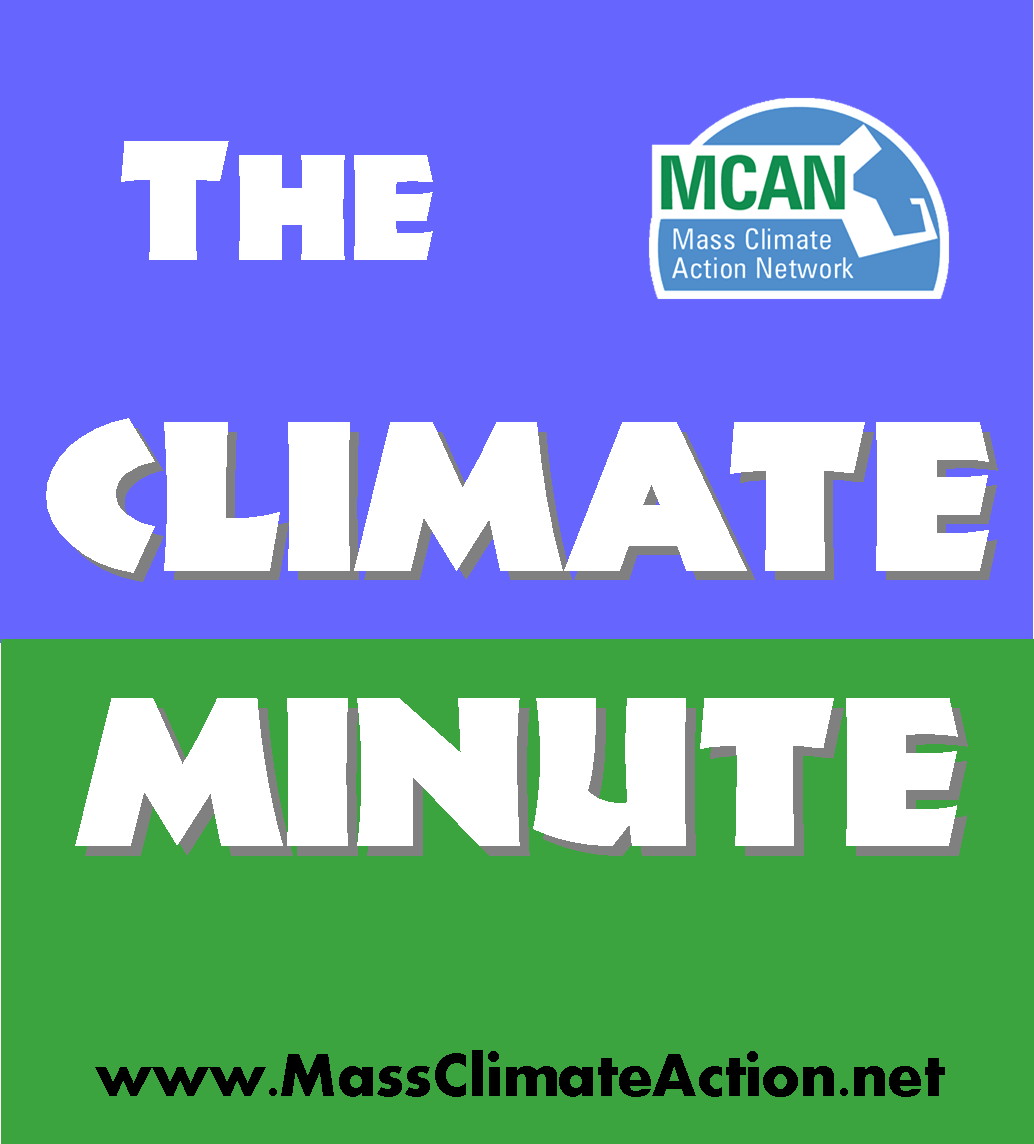

Is the government of British Columbia signalling its opposition to the Northern Gateway pipeline the beginning of the end for Keystone? All this and more in this week's edition of the Climate Minute.
Good morning and welcome to the MCAN Climate Minute. Ted and Rob are coming to you (relatively live) from the Pink and Orange coffeehouse talking about items from Keystone to divestment to The Fugitive... rather, fugitive emissions, and whether we get all our news the echo chamber of p...
Is the government of British Columbia signalling its opposition to the Northern Gateway pipeline the beginning of the end for Keystone? All this and more in this week's edition of the Climate Minute.
Good morning and welcome to the MCAN Climate Minute. Ted and Rob are coming to you (relatively live) from the Pink and Orange coffeehouse talking about items from Keystone to divestment to The Fugitive... rather, fugitive emissions, and whether we get all our news the echo chamber of pro-climate news sites.
Here are your weekly links, and thanks for tuning in!
The Government of British Columbia announced its opposition to the Northern Gateway pipeline proposed by Enbridge which would have brought tar sands west over the Canadian Rockies.
What does this mean? Well, it makes it much harder for tar sands to go west, and makes our comment:
The State Department DSEIS “passed” the pipeline in part on the basis that the tar sands would be exploited even if Keystone XL wasn’t built – but that’s not necessarily the case. Pipelines to the west from Alberta are stalled, and there are economic and environmental limits to non-pipeline transmission of the tar sands. If the XL pipeline is not built the draw-down of the tar sands would continue, but likely at a much slower rate, providing valuable time to pursue other energy sources.
Look all the more prescient. The possibility that the Northern Gateway pipeline will not be built gives lie to the SDEIS supposition that the impact of the carbon in the tar sands doesn't matter because the oil will just be exploited anyway.
So the news is encouraging for foes of Keystone, but issue is not over, There are, of course, other pipelines in the pipeline... Enbridge is proposing a number of pipelines which would import as much tar sands as Keystone would.
In other Keystone news, the public comments made on the SDEIS are being put online, you can search by name. The comments are being made available over time, ours aren't up yet, but you can see the comment of 29 prominent scientists including James Hansen, Michael Mann, and Tuft's own Bill Moomaw.
Keystone leads to talk of divestment. Locally five New England colleges have met the challenge and are divesting their portfolios of carbon stocks. Here's an interesting point / counterpoint on whether divestment is the vital approach, or whether using shareholder advocacy is a more fruitful path. In other words is it more useful to be inside the tent arguing for improvement, or on the outside?
Dr. Richard Kimble was accused of a crime he did not commit... Sorry, wrong fugitive. Fugitive emissions is the new phrase of the day. In today's podcast we talk about how the emissions from natural gas pipelines may make natural gas as bad an emitter as coal burning. The Guardian has a story about new studies that suggest the emissions benefits of the natural gas boom will be offset by the climate impact of pipeline leaks.
This corresponds with a report issued by the Conservation Law Foundation earlier this year that estimates 4% of all natural gas transported through pipelines in New England is lost.
Methane is just one of several greenhouse gasses, and a potent one at that. MIT professor Ron Prinn notes that counting all the various greenhouse gases the CO2 equivalent would be about 478ppm, rather than the 400ppm figure recently noted.
In political news, President Obama is to appoint three judges to the DC circuit court, which has huge climate implications as appeals of EPA regulations go there. Slate's gabfest podcast has an interesting conversation here. (Listen to the whole thing for an interesting conversation of new Secretary of Energy Ernest Moniz's hair...)
In great news, the federal government is about to auction of tens of thousands of acres of space for offshore wind power, enough space for up to 3,400 megawatts of wind power.
As we mentioned, a new fossil discovery found a 50 million year old primate, apparently the first ancestor of humankind they've found. Think of that -- 50 million years ago the line began, three million years ago Lucy was hunting and gathering in modern day Ethiopia, less than 100,000 years ago homo sapiens emerged, and "modern" civilization emerged probably 10,000 some odd years ago. The point being -- all of the damaged we've done to our atmosphere has taken place in the last two hundred years, a blink of the eye in time. We're like the millionaire's son who has squandered our inheritance in the six months since our dad's death....
Ted's deep thought of the week is about where we get our news, and how that might shape our opinions.
This first struck him when reading a couple of stories, first about the Koch Brother's quasi-censorship of the PBS station in New York, and second after watching ClimateDesk's David Sasson on the Colbert Report. Where you get your news impacts what you hear, which impacts your opinions.
The concern is whether he's getting a broad enough spectrum of "news", or just hearing the same things over and over again...
For his part, here's his list of common go-to news sites:
Inside Climate News, Grist, Thinkprogress, ClimateDesk, and The Guardian (notice, the only traditional old-school newspaper on the list). For Rob's part, he tends to get his news from google alerts and blogs.
Climate change news is fragmented and disjointed, and often ignored entirely in the main stream media, which makes it a challenge to get good, unbiased, "fair and balanced" news. Here's a question to you: where do you go for your climate news? Maybe you know a good source we haven't figured out yet. Drop us a line and let us know.
As always, it's been a pleasure sharing climate news and views with you. You know, you can subscribe to our iTunes feed and get our podcasts automatically here. Feel free to give us your thoughts on our Facebook page, or through old-fashioned email.
You can donate and support the Climate Minute and all of MCAN's other climate change fighting activities by hitting that "donate now" button, or going to www.massclimateaction.net/donate. Remember, for climate activities near you check out our MCAN climate action calendar. You can enter events as well as browse for interesting things to do. As always -- remember, for these reasons we have discussed, the United States must place a price on carbon.
View more
Comments (3)
More Episodes
All Episodes>>Creat Yourt Podcast In Minutes
- Full-featured podcast site
- Unlimited storage and bandwidth
- Comprehensive podcast stats
- Distribute to Apple Podcasts, Spotify, and more
- Make money with your podcast
It is Free












